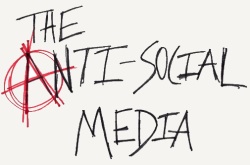Facebook added another feature nobody asked for. Now, instead of adding or ignoring a friend request, it, You have the choice of Add or Not Now.
What was once a simple, one click process is now a four click process. People you choose to add later go to the Hidden Requests area. You have to go there, then click once more to remove them completely. Apparently as users, we just don’t know how to add people correctly into our virtual lives and need to wait before we add them.
What’s worse is this option has a hidden feature. If you leave someone in your hidden area, they follow your public information. Forget to turn off Places from the public eye? They can see. Forget to privatize those status updates? They can see.
This isn’t any different from someone just pulling up your profile and seeing what you have public, but it makes it easier for them to see whats happening in realtime, as opposed to having to refresh the page over and over. As always, check your privacy settings and make sure you’re comfortable with people stalking you from the hidden folder.
Still, what was wrong with the old option? Why did a yes or no question have to become a yes or maybe question?
If Facebook ever adds a useful feature, someone let me know.
